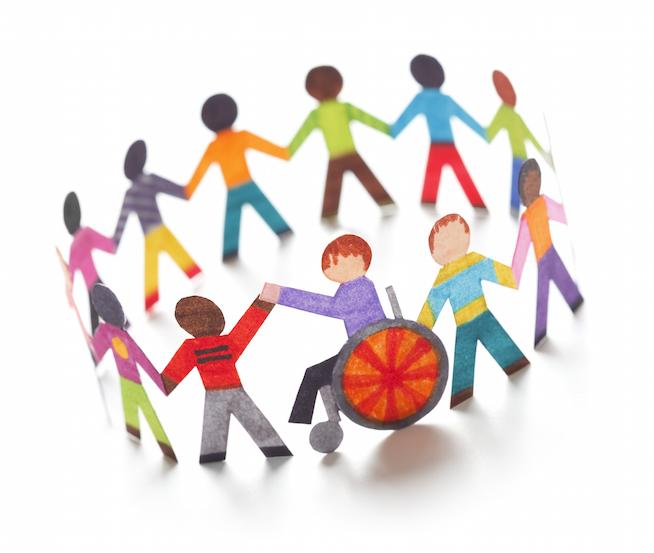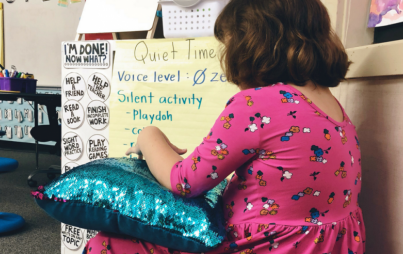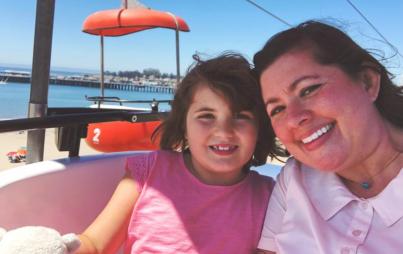
Special Needs Kids
Parenting is a journey and a challenge. At #BlogHer15: Experts Among Us, I attended a panel called Storytelling Builds Bridges: I Want You To Know Me; Storytelling about Special Needs Parenting and Disability. It drew a room full of mothers and fathers of “atypical” children. The top takeaway: “When you share your stories with virtual strangers, you are not alone.”
I reached out to panelists Ellen Seidman and Lisa Quinones-Fontanez after the event, to learn more about their specific circumstances.
Seidman told the audience how her son, Max, had seizures after his C-section delivery, resulting in a stroke. Seidman narrates that experience in heartwrenching detail on her blog, “Love That Max.”
With a deep footprint in the magazine world, writing about her situation came naturally to Seidman. In 2008, while hiring a blogger for Glamour (she was deputy editor at the magazine), Seidman decided to create her own blog about Max. The subtitle is: A blog about kids with special needs who kick butt.
Speaking about the transformation the Internet has made for parents with special needs children, Seidman pointed to how it has changed the playing field. For those grappling with questions from where to find basic services to how to emotionally cope with the tribulations of caregiving, it has been a game changer. “Just to be able to open your laptop and get an instant response!” exclaimed Seidman.
“A place to help other parents” is how Seidman views her blog — as well as an “outlet for sharing.” Seidman admits that her blog is not only “cathartic,” but also a great place to “vent about her frustrations and other people’s perceptions.”
Beyond relating Max’s milestones and an authentic view of living with a child with cerebral palsy, Seidman appreciates the give and take with readers — many of whom are “geographically isolated.” Sometimes her posts are informational exchanges like, “What shoes work the best with foot braces?” Other times, her blog is a platform for tackling society’s lack of inclusion — specifically the story about the gym that wouldn’t accommodate a child with Down Syndrome.” With exasperation she exclaimed, “They’re still kids!”
Speaking about her son, Seidman said, “Max is inspirational. Seven years into doing the blog, it’s still my passion. I give and I get back.”
Lisa Quinones-Fontanez is the mother of Norris, who was diagnosed with autism at 2 years old. Her life is very full, combining her day job, writing at night (she has an MFA in Creative Writing), and taking care of her son. She has also become an activist in the Latino community, helping to raise awareness for early recognition of autistic spectrum disorders.
At BlogHer, she spoke frankly about her initial reaction to her son’s diagnosis. “It was not part of my plan,” she said. In addition to navigating the waters around her new situation, Quinones-Fontanez talked about having to contend with “dealing with everybody else” and “being put into a different category.” There were nods of agreement among those listening.
Quinones-Fontanez started her first blog, Autism Wonderland, in 2010. As she explained via email, the experience of negotiating the autism labyrinth was different than the stories she was finding in books on the subject. “I read all these memoirs that did not reflect my reality. I didn't live in a house in the suburbs and I couldn't quit my job to care for my son. It felt like every memoir I read was written by people with money and means that I didn't have.”
Part of the reason Quinones-Fontanez writes is to “give parents hope.” She has garnered acknowledgment for her leadership in the Latino community around autism issues — as she has been open about her son’s development and the process of dealing with the Department of Education maze in the Bronx. Quinones-Fontanez’s new blog iteration is Atypical Familia.
I asked Quinones-Fontanez why she thought African-American and Latino children were diagnosed late. She responded: “There are many factors, but I think it mainly comes down to knowledge and accessibility to resources. I didn't know what autism was or what the symptoms were until my son was diagnosed. It's important that every parent — especially new ones — know the signs of autism.” Quinones-Fontanez’s advice was clear, “If you have any doubt about your child's development, don't wait. Seek help. Early intervention is critical.” She mentioned the Easter Seals screening tool, “Make the First Five Count.”
Like Seidman, Quinones-Fontanez revels in her son’s accomplishments. Norrin, currently 9 years old, participates in a special needs baseball team. He attends an ABA school where he receives a full range of services.
“The online community has been one of my most valuable resources,” Quinones-Fontanez emphasized. “It's made our journey a little less lonely, knowing that I have people in my life who understand. I have built a community that can provide me with advice and hope.”








